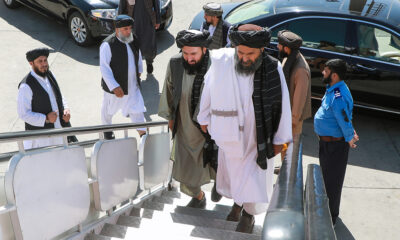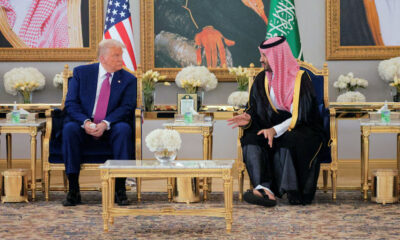Regional
Iran gave Russia missiles but no launchers, sources say
The Kremlin at that time declined to confirm its receipt of the missiles but acknowledged that its cooperation with Iran included “the most sensitive areas.”
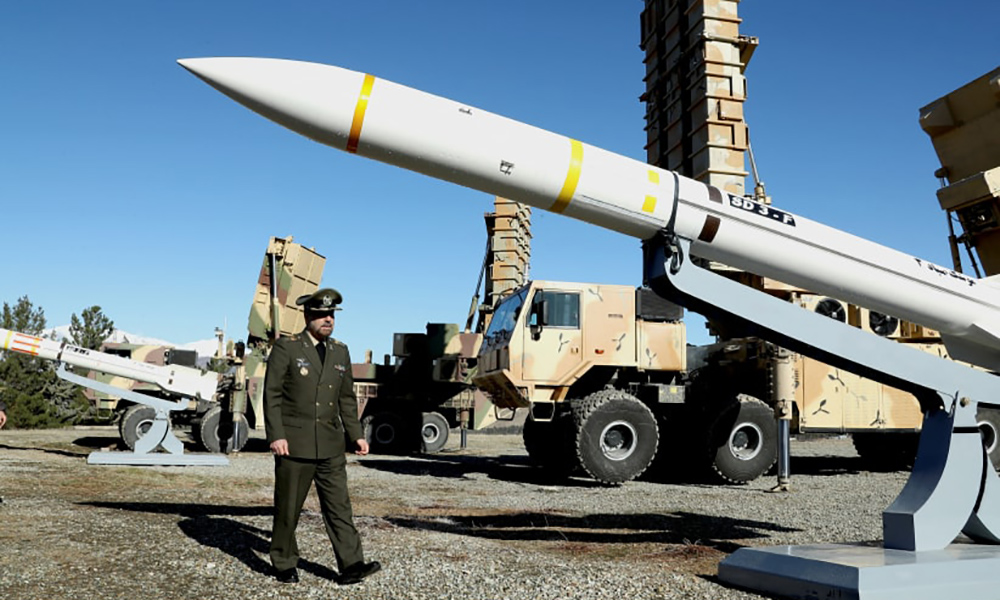
Iran did not include mobile launchers with the close-range ballistic missiles that Washington last week accused Tehran of delivering to Russia for use against Ukraine, according to three sources with knowledge of the matter, Reuters reported.
The sources – a European diplomat, a European intelligence official and a U.S. official – said it was not clear why Iran did not supply launchers with the Fath-360 missiles, raising questions about when and if the weapons will be operational.
The U.S. official, who like the other sources spoke on condition of anonymity, said Iran had not delivered the launchers at the time of the U.S. announcement about Iran’s delivery of the weapons. The European intelligence official said without elaborating that they did not expect Iran to provide launchers.
Reuters first reported Iran’s plan to send the missiles to Russia.
Two experts told Reuters there could be several reasons why the launchers were not sent. One is that Russia may plan to modify trucks to carry the missiles, as Iran has done. Another is that by withholding the launchers, Iran is allowing space for new talks with Western powers on easing tensions.
The Russian defense ministry declined to comment.
The U.S. National Security Council did not immediately respond to a request for comment and the Pentagon declined to comment.
Iran’s mission to the United Nations did not immediately respond to a request for comment.
Tehran denies providing Moscow with the missiles or with thousands of drones that Kyiv and Western officials have said Russia uses against military targets and to destroy civilian infrastructure, including Ukraine’s electrical grid, read the report.
U.S. Secretary of State Antony Blinken said on Sept. 10 that Iran had delivered the Fath-360s to Russia and would “likely use them within weeks in Ukraine.”
The missile would pose an additional challenge for Ukraine, which is constantly adapting its air defenses to innovations by Russian forces. Iran’s semi-official Fars news agency says the missile travels at four times the speed of sound when approaching targets.
Blinken said the missiles threatened European security and would be fired against short-range targets, allowing Russia to reserve more of its extensive arsenal for targets beyond the front lines. The Fath-360 has a range of up to 75 miles (121 km).
The United States, Germany, Britain and France imposed new sanctions on Iran, and the EU said the bloc was considering fresh measures targeting Iran’s aviation sector.
The Kremlin at that time declined to confirm its receipt of the missiles but acknowledged that its cooperation with Iran included “the most sensitive areas.”
Blinken did not say how many Fath-360s Iran supplied to Russia or when they were sent.
Reuters determined through shipping data that a Russian freighter sanctioned by Washington, the Port Olya-3, made voyages between Iran’s Caspian Sea port of Amirabad and the Russian port of Olya several times between May and Sept. 12.
Fabian Hinz, an expert on Iranian missiles with the International Institute for Strategic Studies, said he could not confirm that Tehran withheld the launchers.
Ballistic missiles require specifically designed launchers in order to be fired.
According to Hinz, one reason Iran didn’t send launchers may be that the civilian trucks that Iran modified to launch these and other missiles are not robust enough to operate in rough terrain during Ukraine’s harsh winter. Iran modifies trucks made by Mercedes and other companies and turns them into easily disguised missile launchers, he said.
That suggests, he continued, that Russia could modify its own military-grade vehicles.
“A commercial, off-the-shelf Mercedes truck is just not that off-road capable,” he said
David Albright, a former U.N. nuclear inspector who heads the Institute for Science and International Security, also could not say whether Iran delivered the launchers.
But he noted that Iran’s new president, Masoud Pezeshkian, and other Iranian officials will be meeting with European officials on the sidelines of next week’s U.N. General Assembly in New York to test the potential for diplomacy on Tehran’s nuclear program, regional tensions and other disputes, read the report.
“It could be that they (Iran) are holding back the launchers to provide a little space for these talks,” he said. “One can imagine that if there are Iranian missiles raining down (on Ukraine) there would be condemnation at the General Assembly.”
But he was skeptical of any progress, saying he doubted Iran would make the necessary compromises.
Regional
Trump to lift Syria sanctions, signs $600 billion deal with Saudi Arabia
Trump has not scheduled a stop in Israel, raising questions about where the close ally stands in Washington’s priorities as Trump presses Israeli Prime Minister Benjamin Netanyahu to agree to a new ceasefire deal in the 19-month-old Gaza war.
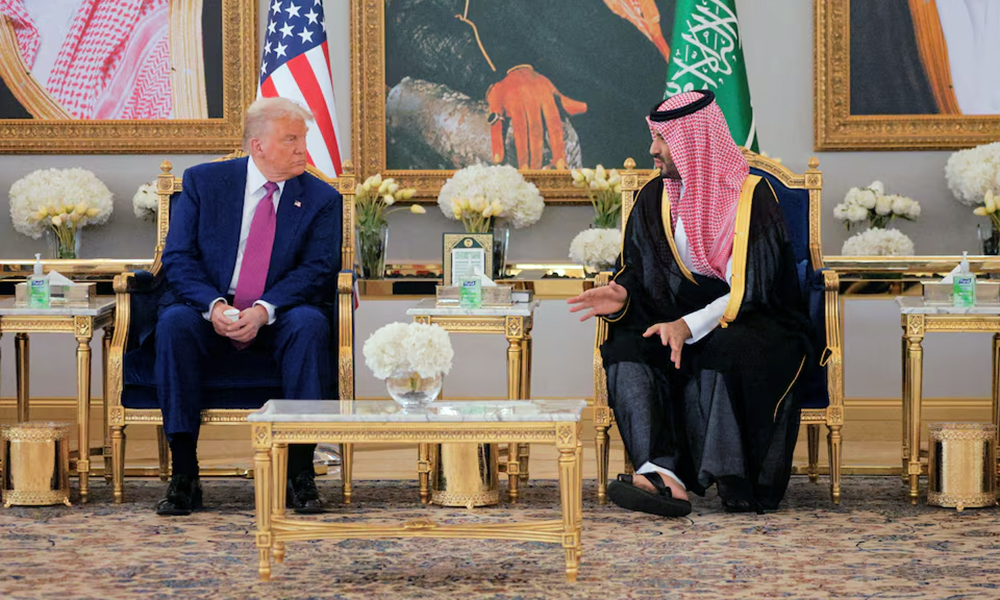
President Donald Trump kicked off his trip to the Gulf on Tuesday with a surprise announcement that the United States will lift long-standing sanctions on Syria, and a $600 billion commitment from Saudi Arabia to invest in the U.S, Reuters reported.
The U.S. agreed to sell Saudi Arabia an arms package worth nearly $142 billion, according to the White House which called it the largest “defense cooperation agreement” Washington has ever done.
The end of sanctions on Syria would be a huge boost for a country that has been shattered by more than a decade of civil war. Rebels led by current President Ahmed al-Sharaa toppled President Bashar al-Assad last December.
Speaking at an investment forum in Riyadh at the start of a deals-focused trip that also brought a flurry of diplomacy, Trump said he was acting on a request to scrap the sanctions by Saudi Arabia’s de facto ruler, Prince Mohammed bin Salman.
“Oh what I do for the crown prince,” Trump said, drawing laughs from the audience. He said the sanctions had served an important function but that it was now time for the country to move forward.
The move represents a major U.S. policy shift. The U.S. declared Syria a state sponsor of terrorism in 1979, added sanctions in 2004 and imposed further sanctions after the civil war broke out in 2011.
Syrian Foreign Minister Asaad al-Shibani said on X that the planned move marked a “new start” in Syria’s path to reconstruction. Trump has agreed to briefly greet Sharaa in Saudi Arabia on Wednesday, a White House official said.
Trump and the Saudi crown prince signed an agreement covering energy, defense, mining and other areas. Trump has sought to strengthen relations with the Saudis to improve regional ties with Israel and act as a bulwark against Iran.
The agreement covers deals with more than a dozen U.S. defense companies for areas including air and missile defense, air force and space, maritime security and communications, a White House fact sheet said.
It was not clear whether the deal included Lockheed F-35 jets, which sources say have been discussed. The Saudi prince said the total package could reach $1 trillion when further agreements are reached in the months ahead.
Saudi Arabia is one of the largest customers for U.S. arms, and the two countries have maintained strong ties for decades based on an arrangement in which the kingdom delivers oil and the superpower provides security.
But relations were strained after the 2018 murder of U.S.-based Saudi journalist Jamal Khashoggi by Saudi agents in Istanbul caused a global uproar. U.S. intelligence concluded that bin Salman approved an operation to capture or kill Khashoggi, a prominent critic, but the Saudi government has denied any involvement.
Trump did not mention the incident during his visit and called bin Salman an “incredible man.”
“I really believe we like each other a lot,” Trump said.
Trump will go on from Riyadh to Qatar on Wednesday and the United Arab Emirates on Thursday in a trip that is focused on investment rather than security matters in the Middle East, read the report.
Several U.S. business leaders attended the event, including Elon Musk, the Tesla chief who has led a government-downsizing effort for Trump in Washington; OpenAI CEO Sam Altman; BlackRock CEO Larry Fink and Blackstone CEO Stephen Schwarzman.
Trump was shown speaking with several Saudi officials, including sovereign wealth fund governor Yasir al-Rumayyan, Aramco CEO Amin Nasser and investment minister Khalid al-Falih as he viewed models for the kingdom’s flashy, multi-billion-dollar development projects.
Bin Salman has focused on diversifying the Saudi economy in a major reform program dubbed Vision 2030 that includes “Giga-projects” such as NEOM, a futuristic city the size of Belgium. Oil generated 62% of Saudi government revenue last year.
The kingdom has scaled back some of its ambitions as rising costs and falling oil prices weigh.
Trump has not scheduled a stop in Israel, raising questions about where the close ally stands in Washington’s priorities as Trump presses Israeli Prime Minister Benjamin Netanyahu to agree to a new ceasefire deal in the 19-month-old Gaza war.
Israel’s military operations against Hamas in Gaza and Hezbollah in Lebanon, and its assassinations of the two Iran-allied groups’ leaders, have at the same time given Trump more leverage by weakening Tehran and its regional allies, Reuters reported.
Trump said it was his “fervent hope” that Saudi Arabia would soon normalize relations with Israel, following other Arab states that did so during his first 2017-2021 term. “But you’ll do it in your own time,” he said.
Netanyahu’s opposition to the creation of a Palestinian state makes progress with the Saudis unlikely, sources told Reuters.
Trump on Tuesday called Iran “the most destructive force” in the Middle East and warned that the U.S. will never allow it to obtain a nuclear weapon. He said he was willing to strike a new deal with the Islamic Republic but only if its leaders changed course.
“I want to make a deal with Iran,” he said. “But if Iran’s leadership rejects this olive branch… we will have no choice but to inflict massive maximum pressure.”
Regional
Iran, Europeans to hold nuclear talks on Friday, diplomatic sources say
The European powers are not part of current negotiations between Iran and the United States, the fourth round of which ended in Oman on Sunday.
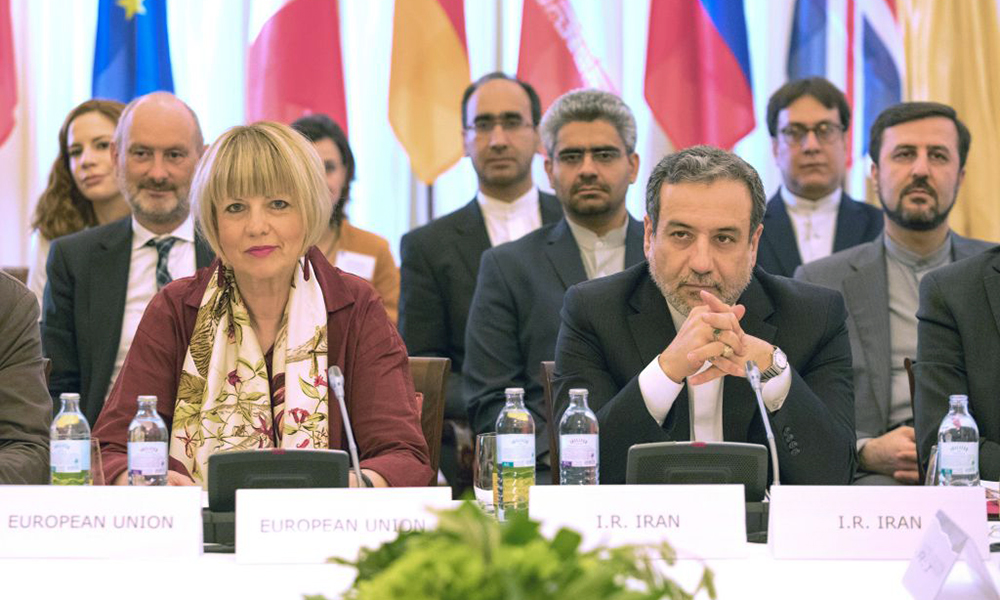
Iran will hold talks in Istanbul on Friday with European parties to their now-moribund 2015 nuclear deal, two European and an Iranian diplomatic source said on Tuesday,
The talks among senior diplomats come as both sides seek to position themselves ahead of an expected fifth round of U.S.-Iranian negotiations in the coming days, Reuters reported.
Earlier talks planned on May 2 were postponed with Britain, France and Germany, known as the E3, initially hesitant over concerns such talks could create a parallel track and hijack the negotiations pursued by the Trump administration that Washington says aim to prevent Iran from developing nuclear weapons.
But diplomats said they opted to go ahead because it was ultimately in their interest to maintain dialogue with Iran and reaffirm how they envisaged the parameters of a new nuclear deal.
Iran is also keen to hold the talks to keep its options open and assess where the European powers stand regarding the reimposition of U.N. sanctions, something Iran’s foreign minister warned them on Monday against doing.
Relations between the E3 and Iran have worsened over the last year despite sporadic meetings, against a backdrop of new sanctions imposed on Tehran over its ballistic missile programme, its detention of foreign citizens and support for Russia in its war against Ukraine, read the report.
Under terms of a U.N. resolution ratifying a 2015 nuclear pact, the three European powers could reimpose United Nations sanctions against Tehran before October 18, known in diplomatic circles as the “snapback mechanism.”
The European powers are not part of current negotiations between Iran and the United States, the fourth round of which ended in Oman on Sunday.
But the three powers have sought to coordinate closely with Washington with a view to whether and when they should use the snapback mechanism to raise pressure on Iran over its nuclear programme.
According to diplomats and a document seen by Reuters, the E3 countries may trigger a snapback by August if no substantial deal can be reached by then, Reuters reported.
The next round of talks between Iran and the U.S. to resolve disputes over Tehran’s nuclear programme will be held in the coming days after both sides have consulted with their respective capitals, according to Oman, which mediates the negotiations.
Regional
Trump starts Gulf visit in Saudi Arabia, focus on mega economic deals

U.S. President Donald Trump began a tour of wealthy Gulf states on Tuesday by visiting Saudi Arabia, with his focus on securing trillions of dollars in investments rather than security issues ranging from war in Gaza to Iran’s nuclear program.
Emerging from Air Force One, Trump punched the air in a show of solidarity when Crown Prince Mohammed bin Salman greeted him at the airport after his arrival in Riyadh with a who’s who of business leaders in tow including billionaire Elon Musk.
Trump will go on from Riyadh, which is hosting a Saudi-US Investment Forum, to Qatar on Wednesday and the United Arab Emirates on Thursday. But he has not scheduled a stop in Israel, a decision that has raised questions about where the close ally stands in Washington’s priorities.
“While energy remains a cornerstone of our relationship, the investments and business opportunities in the kingdom have expanded and multiplied many, many times over,” Saudi Investment Minister Khalid al-Falih said as he opened the forum.
“As a result … when Saudis and Americans join forces very good things happen, more often than not great things happen when those joint ventures happen,” he said before Trump’s arrival.
Trump hopes to secure trillions of dollars of investments from the Gulf oil producers. Saudi Arabia had pledged $600 billion but Trump has said he wants $1 trillion from the kingdom, one of Washington’s most important strategic partners.
The Saudi-US Investment Forum began with a video showing soaring eagles and falcons that celebrated the long history between the United States and the kingdom.
At the front of a palatial hall sat Larry Fink, the CEO of asset management firm BlackRock, Stephen A. Schwartzman, CEO of asset manager Blackstone, Treasury Secretary Scott Bessent, and Saudi Finance Minister Mohammed Al Jadaan and Falih.
Speaking at a forum panel, Fink said he had traveled to Saudi Arabia more than 65 times over 20 years. While the kingdom had been a follower when he first started visiting, it was now “taking control” and broadening its economy out of its oil base, he said.
Musk chatted briefly with both Trump and the crown prince, who is otherwise known as MbS, during a reception at a palace for the U.S. president.
MbS has focused on diversifying the kingdom’s economy in a major reform programme dubbed Vision 2030 that includes “Giga-projects” such as NEOM, a futuristic city the size of Belgium.
The kingdom has had to scale back some of its lofty ambitions as rising costs and falling oil prices weigh.
Joining Trump for a lunch with MbS are top U.S. businessmen including Musk, the Tesla and SpaceX chief, and OpenAI CEO Sam Altman.
LONG TIES BASED ON OIL AND SECURITY
Saudi Arabia and the U.S. have maintained strong ties for decades based on an ironclad arrangement in which the kingdom delivers oil and the superpower provides security.
Trump has also said he may travel on Thursday to Turkey for potential talks between Vladimir Putin and Volodymyr Zelenskiy on Russia’s war in Ukraine. An aide to Zelenskiy said the Ukrainian president would take part only if Putin does. The Russian leader has not said if he will attend, and has questioned Zelenskiy’s legitimacy.
Trump’s second foreign trip since returning to the presidency in January – his first was to Rome for Pope Francis’ funeral – comes at a time of geopolitical tension.
In addition to pressing for a settlement in Ukraine, his administration is pushing for a new aid mechanism for Gaza after 19 months of war and urging Israeli Prime Minister Benjamin Netanyahu to agree a new ceasefire deal there.
Israeli officials have put a brave face on Trump’s decision to bypass Israel during his trip but there are growing doubts in Israel about its position in his priorities as frustration mounts in Washington over the failure to end the Gaza war.
Over the weekend, U.S. and Iranian negotiators met in Oman to discuss a potential deal to curb Tehran’s nuclear program. Trump has threatened military action against Iran if diplomacy fails.
Iran’s Nournews quoted armed forces chief of staff Mohammad Bagheri as saying on Tuesday that Iran’s neighbours should retain neutrality and that any aggression against Iran would lead to definitive retaliation.
Trump is expected to offer Saudi Arabia an arms package worth more than $100 billion, sources told Reuters. This could include a range of advanced weapons.
Trump’s Middle East envoy, Steve Witkoff, said last week he expected progress imminently on expanding the Abraham Accords, a set of deals brokered by Trump in his first term by which Arab states including the UAE, Bahrain and Morocco recognised Israel.
But opposition by Netanyahu to a permanent stop to the war in Gaza or to the creation of a Palestinian state makes progress on similar talks with Riyadh unlikely, sources told Reuters.
(Reuters)
-

 Latest News4 days ago
Latest News4 days agoPakistan says India launched attack on Afghanistan, India denies
-

 Latest News5 days ago
Latest News5 days agoMCC Chief: Afghan cadres sent to China for AI training
-

 World4 days ago
World4 days agoUS offers to help India and Pakistan start talks, G7 also urges dialogue
-

 Sport4 days ago
Sport4 days agoFIFA OKs creation of Afghanistan women’s refugee team
-
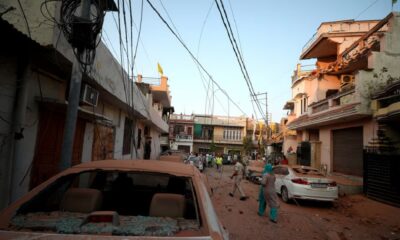
 Regional4 days ago
Regional4 days agoPakistan says it has launched military offensive against India
-

 World4 days ago
World4 days agoTrump says India, Pakistan agree to ‘full and immediate ceasefire’
-
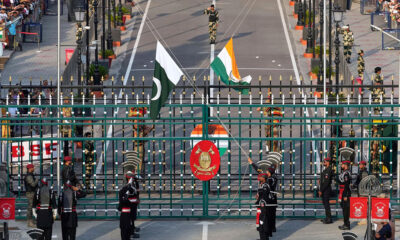
 Regional3 days ago
Regional3 days agoExplosions reported after India and Pakistan agree to ceasefire
-
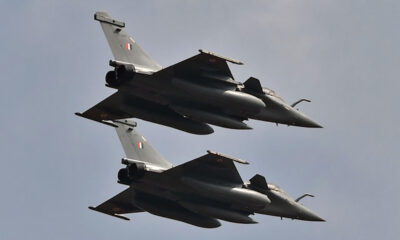
 Regional2 days ago
Regional2 days agoIndian air force says losses are part of combat but all pilots back home










